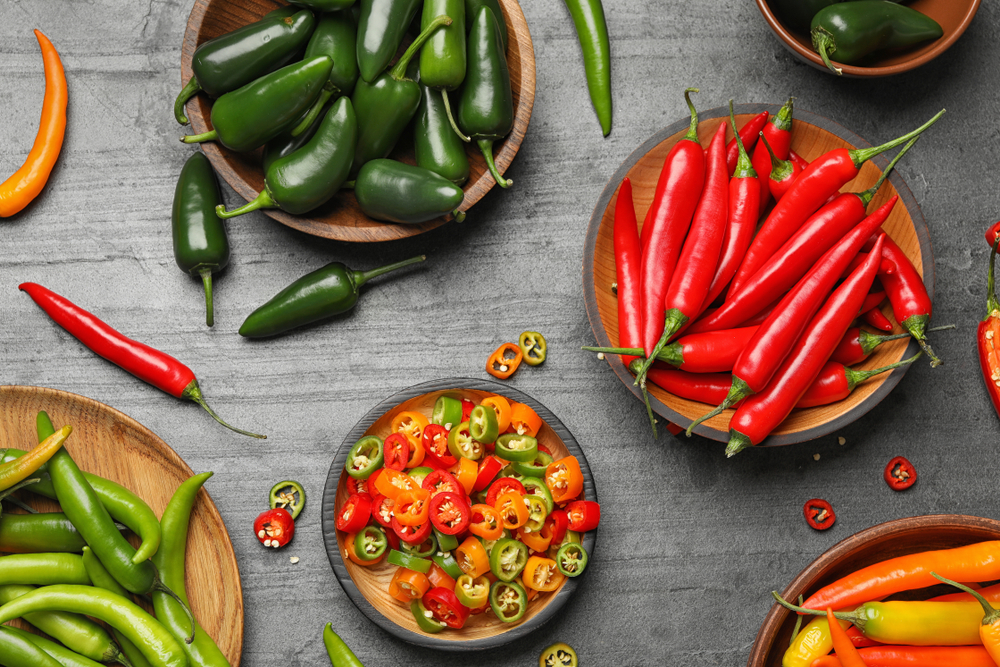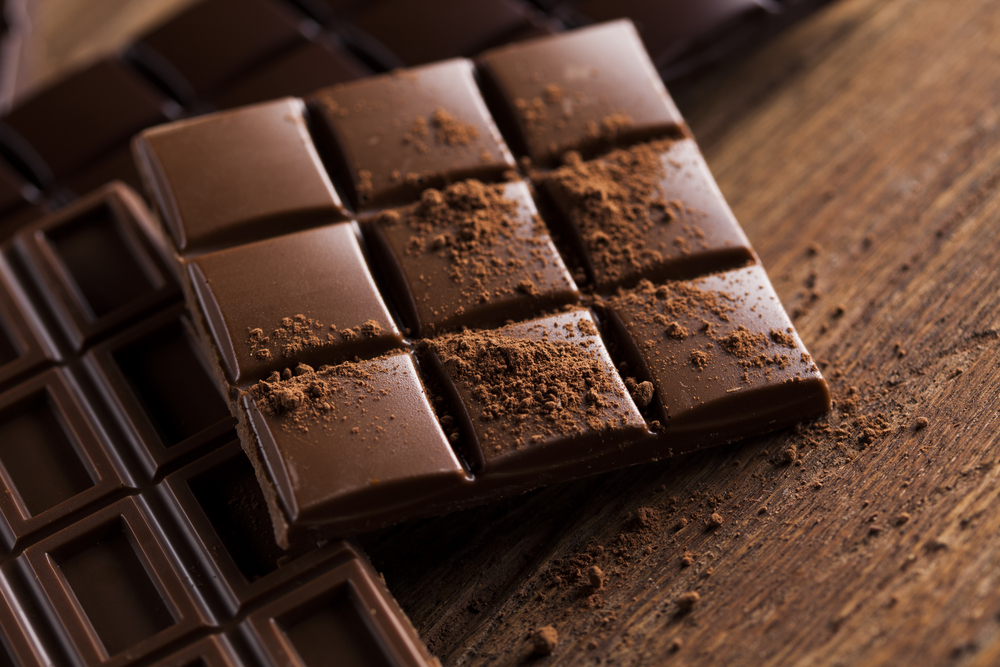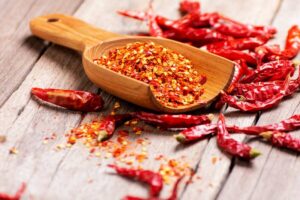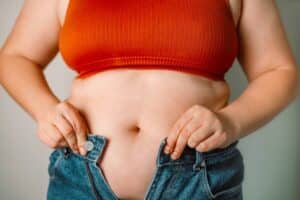There are some things, such as exercising, a hot summer day, or, at worst, fever, that make us sweaty like an ice pole in a Viking’s hands. But who would’ve thought that eating could do that, too? As it turns out, some foods that you put on your plate can really make your temperature soar and produce perspiration.
Well, we’re all in for anything that makes us lose extra water in our bodies, so we’ve decided to research more about the foods that help us sweat. You will find some of the foods here quite intuitive, but I guarantee that others will definitely surprise you!

Spicy foods
If you’re truly into fiery foods, then you probably like your plate as spicy as it gets. Well, you must know that those piquant and peppery flavors you crave in hot wings and wasabi can easily promote perspiration. Why? It’s all due to the star of the show, a compound called capsaicin.
That’s what gives the spicy food its much-needed and beloved kick, and that’s what will get you sweaty. Capsaicin binds to your nerve receptors, which then transmit signals to your brain that are translated as heat. In exchange, it produces a cooling response (and by that, I mean sweating) throughout your body. The good news is that the spicier the food, the moister your armpits, so to speak.
Hot foods and drinks
This one is probably the most intuitive one. After all, if you’re slurping a mug of hot cocoa or a bowl of bubbling soup, you will probably feel warm inside. Well, eating and drinking hot food is known to increase the internal temperature.
This is what triggers the body to cool itself by sweating, according to the International Hyperhidrosis Society. Besides, if it’s already 90 degrees outside, the hot weather will probably make you sweat even more. If you’re looking for a delicious hot cocoa option, here’s what we recommend.
Coffee
Your favorite cup of coffee might be the reason why your shirts are pit-stained. And no, it doesn’t imply spilling over your coffee in peculiar ways. Even if caffeine is known to wake us up, it could also increase our blood pressure, body temperature, and blood flow to the skin and extremities, according to the University of Michigan.
Moreover, all this expended energy could ultimately translate into a great deal of dampness. Besides, if you prefer your java piping hot, then the heat could also heighten the body temperature, which would further stimulate a sweaty reaction.
Alcohol
If you ever noticed your face flushing and your pits perspiring when you drink a bit too much booze, well, we’re here to tell you that makes all the sense in the world. Sweating is a very common side effect of drinking tons of alcohol.
If you’re wondering why, here’s a good explanation: when your liver starts working overtime metabolizing alcohol, it also emits heat, which makes you feel all warm and toasty inside, as the American Addiction Centers explained.
Moreover, this sweat-inducing scenario only becomes compounded when you kick back a couple of cocktails, as your liver can’t metabolize more than one drink per hour. However, sweating and hot flashes could also be a sign of alcohol withdrawal. Once the effects of liquor lessen in your system, you could experience hot flashes along with other hangover symptoms, including headaches.
Extra tip: If you ever experience alcohol-related effects or you feel that your drinking might have turned into an unhealthy habit, we’d advise you to talk with your doctor or a trusted mental health professional and ask for help.
Sweets
For some people, a sweet treat could trigger sweating. I know it sounds odd, but let me explain. For example, people who suffer from diabetes might experience sweating after trying out too many sweets. That’s because sweets can contribute to a blood sugar spike.
Indeed, some medical conditions like diabetes are also associated with an increased risk of chronic food-related sweating (which is also known as gustatory sweating, gustatory hyperhidrosis, or even Frey’s syndrome). Besides, scarfing down sweets in one sitting could lead to reactive hypoglycemia.
Reactive hypoglycemia occurs when your blood sugar levels are still low even after eating. And when that occurs, sweating is one of the main symptoms. This condition might also occur after snacking on something sweet. When you’re having your favorite candy, your body burns through simple carbs quite rapidly, which could also cause a sudden dip in blood sugar.
Other relevant signs of reactive hypoglycemia include hunger, pale skin, weakness, shakiness, lightheadedness, anxiety, and even confusion.

Chocolate
The number one reason why chocolate can get your sweat glands working is twofold. First, it’s worth mentioning that chocolate has caffeine. A Hershey’s Special Dark Chocolate Bar will boast 25 milligrams, while a Hershey’s Milk Chocolate Bar will clock in at 10 milligrams, according to the Center for Science in the Public Interest.
As mentioned before, this is a stimulant that could easily rev up your sweet response. Secondly, depending on which varieties, chocolate also has a lot of sugar, and as we well know, sweets can make your pores pour with water.
Salty food
Snacking on salty foods could result in a sweaty situation as well. One of the strongest hypotheses would be that some foods, especially those high in sodium, could shift your blood flow and send your heart racing, according to the Peconic Bay Medical Center.
This also means your heart must pump harder than usual, especially if you overdo it with that saltshaker. This might require your body to exert more energy, which could also make you sweat. Another possible theory is that when you eat a lot of salty foods, your body could try to get rid of the extra salt through sweating.
Meat
Meat could also set your sweat glands in motion, and that’s because that’s what animal protein can do to our bodies. It usually takes more energy to digest than any other food, which could also contribute to sweating. However, you would have to munch on a significant amount of meat to notice this effect.
However, some folks could find that they’re more prone to perspiration when they eat animal protein. For example, those who have a harder time digesting meat, such as older people or those taking antacids, could ultimately experience this sweaty side effect.
How to reduce food-related sweating
If you’ve already noticed that there’s a specific dish that leaves you dripping in a puddle of perspiration, the simplest solution is to ditch it from your diet. However, if you can’t part with your sweat-inducing foods, you could try inducing the portion size, which could ultimately help lessen sweating.
Also, if your food-related sweating is associated with a health issue like diabetes, then keeping a good blood sugar level might turn out to be extremely useful. Lastly, staying hydrated will keep your body cool, which is a surefire way to slash sweating.
Ultimately, it’s also about the way you dress. A lot of cotton and moisture-wicking clothes like these ones will keep moisture at bay! Now, if you want to read other articles, we definitely recommend trying: 7 Best Calcium-Rich Foods: More Nutrients Than a Glass of Milk







